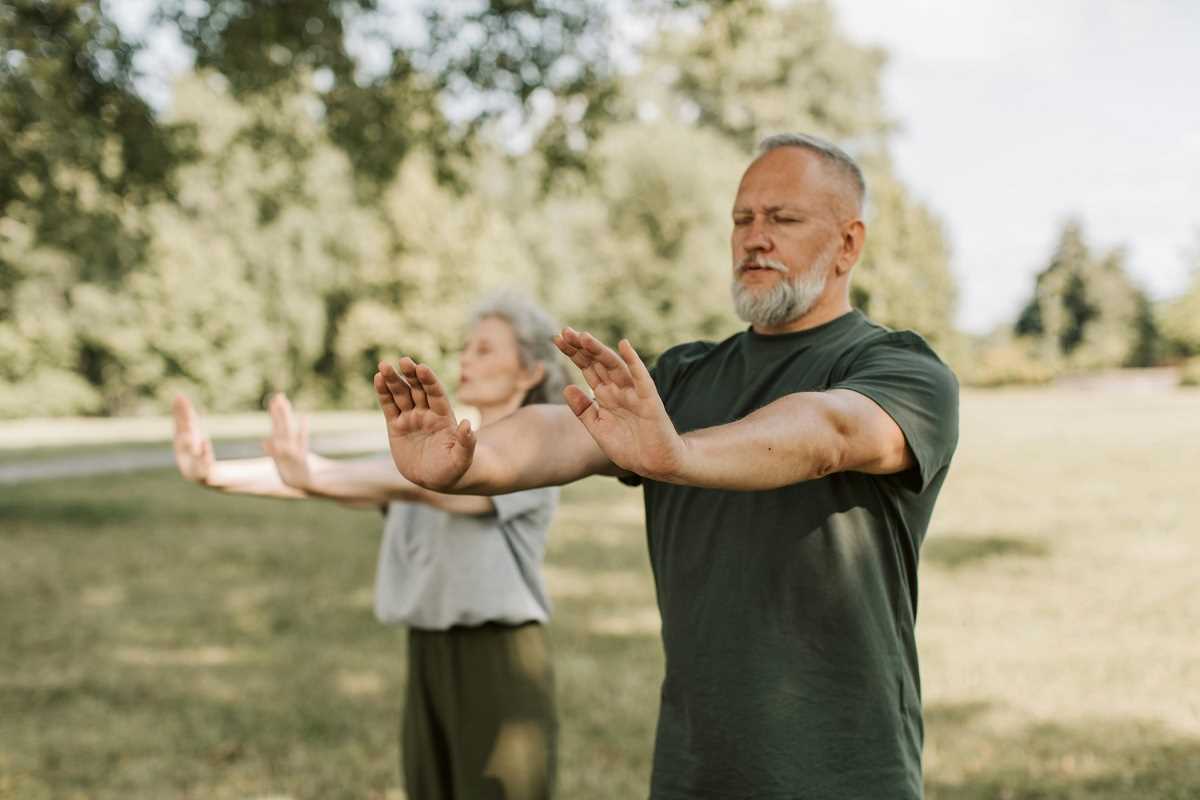Life can throw curveballs at us. Stress piles up, moods dip unexpectedly, and challenges appear everywhere. But the secret to weathering these storms might be easier than you think. Enter fitness—not just as a way to sculpt your body or crank up your energy but as a tool to build emotional resilience.
Regular exercise proves a powerful ally for your mental health. It helps you manage stress, boosts your mood, and strengthens your ability to bounce back from life’s everyday hurdles. Whether you’re looking for a more positive outlook, better stress management, or mental toughness, fitness can be the key. And the best part? Small daily fitness habits can make a huge difference.
Here’s how to make fitness your emotional resilience superpower.
Fitness and Emotional Resilience: The Connection
Before we get into the how, let's talk about the why. Emotional resilience is the ability to adapt and thrive despite adversity. It’s about staying calm under pressure and bouncing back when things don’t go your way. And fitness plays a big role in building this adaptability.
When you work out, several things happen in your brain and body that directly impact your emotional well-being:
- Stress Busting: Exercise lowers levels of cortisol (the stress hormone) and triggers the release of endorphins, your body’s natural mood elevators.
- Mental Clarity: Physical activity boosts blood flow to your brain, helping you think clearer and make better decisions.
- Mood Regulation: Fitness, especially cardio, increases the production of serotonin and dopamine, neurotransmitters responsible for feelings of happiness and calm.
- Mental Toughness: Regular workouts teach you how to push through discomfort and challenges, strengthening your mental grit over time.
Each time you sweat, you’re not just training your muscles but also giving your mind a healthy dose of resilience vitamins.
Start Small and Stay Consistent
You don’t need a two-hour gym ritual to see results. Emotional resilience is built through consistency, not intensity. Here’s how to get started with fitness habits that stick.
Set Realistic Goals
The key to building a fitness routine you’ll actually keep is starting small. Instead of telling yourself you’ll work out seven days a week, aim for two or three 20-minute sessions and build from there. When you set manageable goals, you create a sense of accomplishment, which is powerful for both your confidence and emotional balance.
Sneak Movement Into Your Day
Don’t have time for the gym? No problem. Fitness doesn’t have to mean structured workouts. Take a brisk 15-minute walk during your lunch break, dance around your kitchen while cooking, or stretch before bed. These small bursts of movement add up and still give you mental health benefits.
Pair Fitness with Your Routine
Habit stacking can work wonders for consistency. Tie your workout to something you already do, like going for a run immediately after your morning coffee or doing bodyweight exercises while binge-watching your favorite show. The fewer mental hurdles you have, the easier it becomes to stick with it.
Fitness for Stress and Mood Management
We all get stressed, but fitness can be a game-changer for managing it naturally. Here are some daily habits to control stress and lift your mood with ease.
Try Cardio for a Quick Endorphin Boost
Just 20–30 minutes of running, biking, swimming, or even walking briskly can flood your brain with endorphins. If you’re having a rough day, think of cardio as your instant reset button.
Use Fitness as Moving Meditation
Yoga and Pilates are great examples of workouts that combine physical movement with mindfulness. Focusing on your breath and body during exercise can pull you out of a mental funk and bring you back to the present moment. Even running or swimming can feel meditative if you focus on your breathing rhythm.
Build a Stress-Relief Tool Kit
Sometimes workouts are about letting it all out. On those especially tough days, go for exercises that allow you to release pent-up tension, like kickboxing, heavy bag punches, or an intense HIIT session. Punching and sweating out the frustration can leave you feeling lighter, both mentally and physically.
Fitness for Mental Toughness
Every workout is a metaphor for life. There will be challenges. You’ll have to push through pain, doubt, and the occasional, “Why am I doing this?” But each time you show up and finish, you’re strengthening your mental resilience.
Push Past Your Comfort Zone
It’s not about going full-throttle every time, but challenging yourself with just one extra rep, a slightly heavier weight, or a longer hold in that plank. Over time, you’ll notice that physical discomfort directly translates to better mental endurance when life gets tough.
Stick With It When Motivation Wavers
Building resilience means pushing through even on days you don’t feel like it. Adjust the intensity on low-energy days, but keep the commitment. Maintaining discipline when motivation is low builds trust in yourself and your ability to stick things out.
Celebrate Small Wins
Every milestone counts, no matter how small. Ran your first mile without stopping? Finally held crow pose in yoga? Acknowledge those moments that show growth and resilience.
Make It Fun!
If you hate what you’re doing, you won’t stick with it. Building emotional resilience through fitness should feel empowering, not like a chore. Experiment with workouts until you find something you genuinely enjoy.
Find Your Fitness Personality
- Love Speed? Try running, cycling, or rowing.
- Like Dancing? Zumba, hip-hop classes, or freestyle dancing at home are fantastic mood-boosters.
- Need Structure? Fitness apps or group classes provide guidance and accountability.
- Prefer Nature? Hiking, trail running, or outdoor yoga can be grounding and energizing.
There’s no “right” way to exercise. Any movement that gets your body and heart working is a step in the right direction.
Get Social
Working out with others can give you a double dose of emotional benefits. Not only do you build resilience through exercise, but the connection with others also provides emotional support. Whether it’s a running club, a weekly Pilates class, or just a workout buddy, the social element can keep your spirits high.
A Fitness Plan for Emotional Wellness
Here’s a simple, week-long plan to start incorporating fitness into your daily routine for emotional resilience.
Monday
- 30-minute jog or brisk walk outdoors. Focus on deep breathing to clear your mind.
Tuesday
- 20-minute yoga session (YouTube is packed with free resources!). Use this time to stretch and relax.
Wednesday
- Rest day or active recovery. Take a light walk or do some gentle stretching.
Thursday
- HIIT workout (20 mins). Alternate 30 seconds of high-intensity movement (like jump squats) with 30 seconds of rest.
Friday
- 30-minute strength training. Lift some weights, try bodyweight strength circuits, or use resistance bands.
Saturday
- A fun activity. Dance, hike, bike with friends, or try a new group fitness class.
Sunday
- Reflective run or walk. Use this time to meditate, express gratitude, or process the past week.
The most important thing? Be flexible. Life will sometimes derail your perfect plan, and that’s OK. Resilience is also about adapting, so just do your best.
Fitness is so much more than six-packs and step goals; it’s a tool for feeling better, thinking clearer, and becoming emotionally stronger. By weaving small, consistent fitness habits into your daily life, you’re not just working on your physical health but building a foundation for greater resilience.
 (Image via
(Image via





